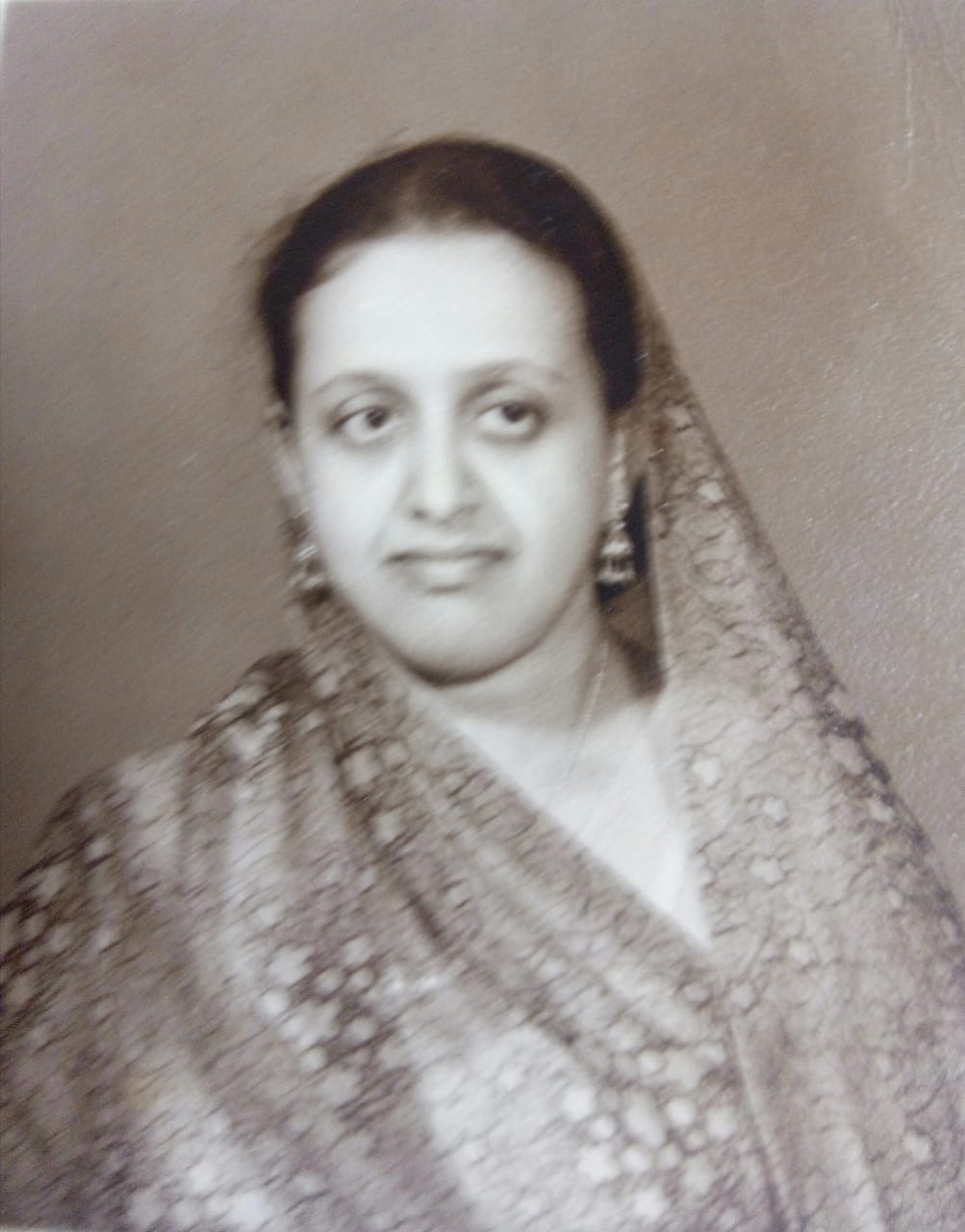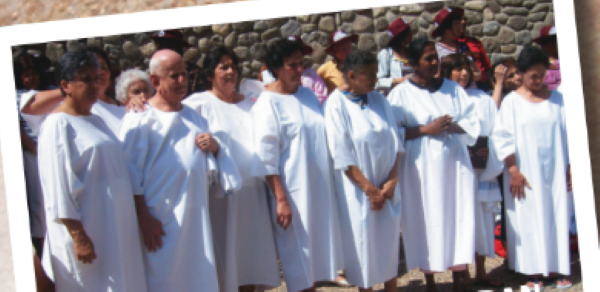Rapunzel, Rapunzel, Let Down Your Hair – By Fazli Sameer
There are moments, even now, when I close my eyes and hear her voice, soft as jasmine petals at dawn, whispering fairy tales into the humid nights of the 1950s in Colombo. The table fan would hum from a side, crickets chirping their sleepy chorus outside, while my brother and I lay tucked under the protection of a worn mosquito net. My mother, Ryhan Rasheed, would sit by the side of our wooden bed, the scent of Sandalwood soap and rosewater rising from her sari, and read to us stories from Grimm and Aesop.
“Rapunzel, Rapunzel, let down your hair,” she would sing, and I swear, even the moon paused to listen.
Born in 1919, she came from another world. One that moved more slowly, with grace. One where women held the family together not through loud declarations, but by the quiet, daily acts of devotion and resilience. My father, a civil servant with the Colombo Municipal Council, with sharp suits and sharper expectations, married her in 1943. She was just 24, with a gentle nature and a core of steel no one saw coming.
What I remember most is her patience. She never raised her voice. Not once. Even when our world, like all families, swayed under the weight of life’s chaos, she remained calm, like the inner eye of a storm. While others fretted, she listened. When someone wept, she brewed tea. And when silence became unbearable, she’d hum a lullaby from her girlhood days in Hultsdorf.
She taught me everything I now hold sacred. Cooking, for instance, was never just about food. It was about love expressed in cloves and curry leaves. I learned to wash rice three times until the water ran clear. I passed my scouting cooking and firelighting test without batting an eyelid, thanks to Mummy. I learned that a real chicken curry took time, slow cooking, gentle stirring, and always tasting with the tip of the smallest spoon. She made sambols from scratch, pounding chilies and onions in a stone miris gala, letting me try my hand until I coughed and teared up with pride. One thing she chased me away from was when I used to drum on the metal pots and pans, in her kitchen, with kitchen wooden ladles. She must have been proud of me when I went on to become a professional jazz drummer later on in life, I am sure?
In the afternoons, when the monsoon rain tapped on our tiled roof, she’d bring out her little harmonica, and I my bongo drums. We were an unlikely duo, she and I, playing country and western folk tunes and singing songs while the garden turned to a soggy paradise outside. “Don’t beat too hard,” she’d say. “Let the music come to you.” Her favorite track was “The Prisoners Song”
And gardening, ah, the garden. A large estate of backyard soil behind our family home where miracles occurred in silence. She showed me how to till the earth with respect, how to speak to plants (not for them, but for you), and how to harvest without greed. She treated every jasmine bloom as a small gift from the universe. Even now, when I step into my condo strip of backyard and see a lone flower bloom, I remember her gently plucking fruit and picking vegetables for the lunch table, whispering thanks to the creator under her breath.
She taught me how to do the laundry, iron my clothes properly, to sweep without stirring dust into the light, and how to fold sheets like a housekeeper in a five start hotel room. There was dignity in order. Grace in simplicity. She didn’t own much, but everything she touched gleamed with care. She was the kind of woman who could sew a button with perfect stitches while narrating the tale of the tortoise and the hare.
But what she truly gave me was a temperament, an inner compass. One that turns toward peace, always.
People often ask me why I’m never easily flustered. Why I approach situations, even crises, with a certain stillness. I smile, and I say, “It’s because of my mother.” She never spoke of mindfulness or equanimity. She was those things. She embodied what philosophers take years to explain.
She wasn’t a woman of high education. She didn’t attend university or write articles or stand at podiums. But she was the most learned woman I’ve ever known, her lessons encoded in gestures, not grammar.
Her passing, in 2014 at the age of 95, was as quiet as her life. No drama. No struggle. Just a gentle drifting into the light, as if she had heard a familiar story calling her home. Even then, I could almost hear her whisper, “Don’t cry, Fuzzy. Make some tea. Water the garden. Life goes on.”
And so it has.
Today, when I go to Youtube and let a tune escape from the cloud, I feel her presence. When I cook rice and dhal with tempered garlic and ghee, I see her hands guiding mine. When I speak kindly to a stranger, or comfort a friend, or wait a little longer before reacting, I hear her voice, still teaching, still loving.
Not all mothers are remembered in statues or poems. Some are remembered in the scent of cardamom. In the glint of polished floor tiles. In a lullaby sung from the lips of an old man who once was her little boy.
So let this be my tribute. A fairy tale of a different kind. Not one of castles or dragons, but of a woman who gave her child the greatest gift of all: a heart trained in patience, and a life lit by small, steady lights.
Rapunzel, Rapunzel…
Let down your hair.
And may your story, Mummy, never end.





















